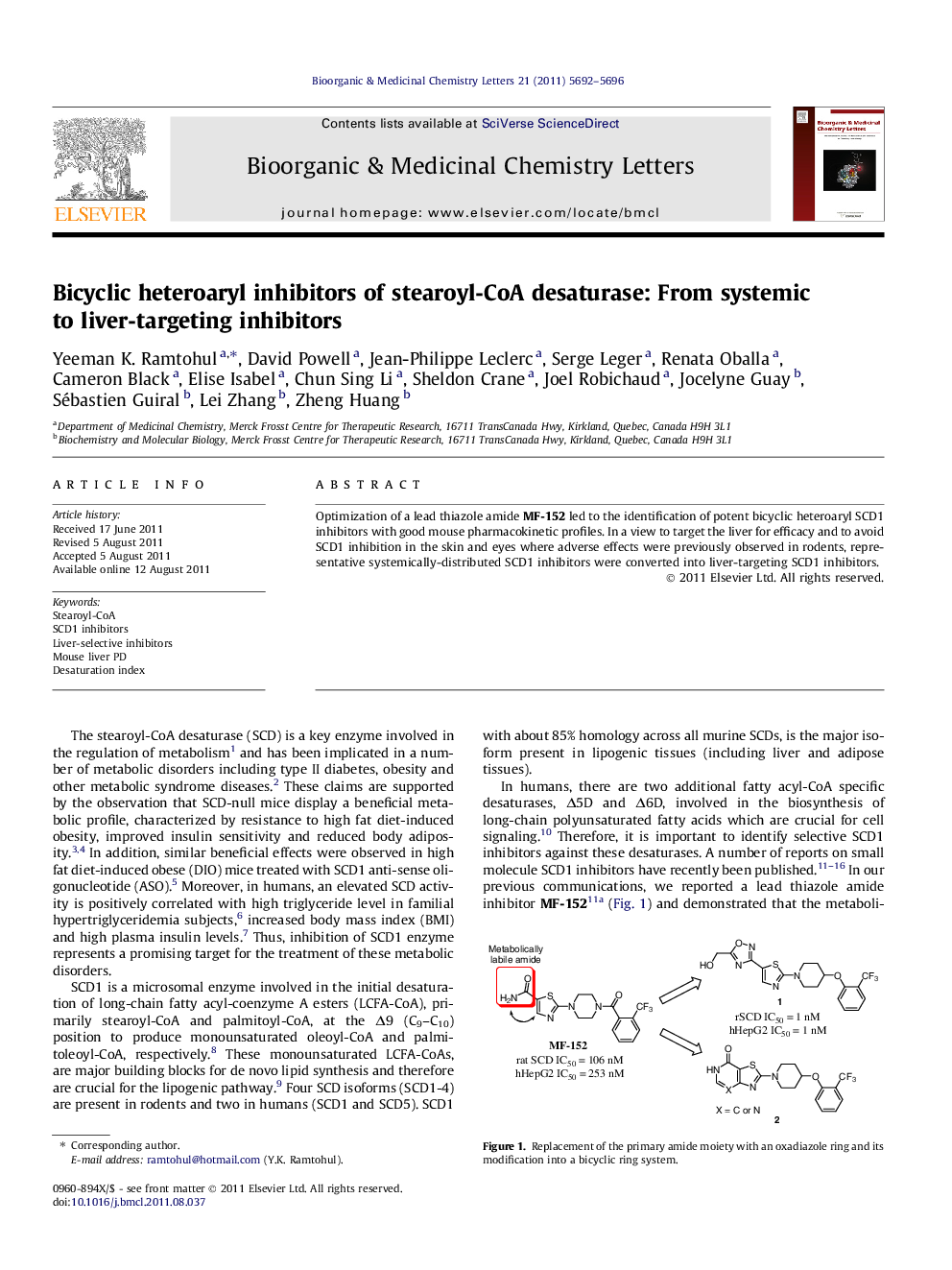| Article ID | Journal | Published Year | Pages | File Type |
|---|---|---|---|---|
| 1372522 | Bioorganic & Medicinal Chemistry Letters | 2011 | 5 Pages |
Optimization of a lead thiazole amide MF-152 led to the identification of potent bicyclic heteroaryl SCD1 inhibitors with good mouse pharmacokinetic profiles. In a view to target the liver for efficacy and to avoid SCD1 inhibition in the skin and eyes where adverse effects were previously observed in rodents, representative systemically-distributed SCD1 inhibitors were converted into liver-targeting SCD1 inhibitors.
Graphical abstractNovel and potent bicyclic heteroaryl SCD inhibitors were identified from optimization of a lead thiazole amide inhibitor, MF-152. In order to target the liver and to minimize systemic exposure to avoid skin and eye adverse events, representative systemically-distributed inhibitors were converted into liver-targeting SCD inhibitors.Figure optionsDownload full-size imageDownload as PowerPoint slide
